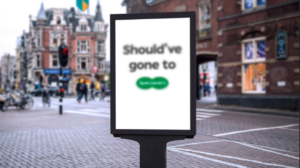By Nick Stringer, Vice President of Global Engagement & Operations, Trustworthy Accountability Group (TAG)
This year’s Cannes Lions may now seem a faded memory for many, but the issue of brand safety — a key topic of conversation in the south of France — will continue to be uppermost in the minds of brands and advertising businesses.
This will be reinforced by the launch of the Global Alliance for Responsible Media, an initiative aimed at improving digital safety via industry dialogue and collaboration. The Global Alliance — which features the world’s largest advertisers, agencies and platforms — will give added ‘bite’ to cross-industry initiatives that are already making a real in-market difference as well as demonstrating the importance of trusted and effective digital channels.
The Trustworthy Accountability Group: a cross-industry self-regulatory approach
Step forward the Trustworthy Accountability Group (TAG) — an international, not-for-profit, cross-industry self-regulatory organisation aimed at tackling criminal activity in digital advertising, such as fraud, malware and ad-supported piracy.
On ad fraud, TAG seeks to prevent advertisers losing ad spend to criminals who generate ad impressions that are never seen by real legitimate people. TAG’s Certified Against Fraud Guidelines (recently updated on 1 July 2019) provides companies with a way to effectively fight invalid traffic and is supported by the World Federation of Advertisers (WFA) in its Global Media Charter.
To date, more than 120 companies — including the largest buyers, sellers, intermediaries and platforms from around the world — have been Certified Against Fraud, and several hundred more are going through the self-regulatory certification process at present. Requirements to achieve the certification — underpinned by a market trading seal — include:
- Filtering 100% of transactions to remove invalid traffic in a manner compliant with the GIVT requirements of the Media Rating Council’s (MRC) Invalid Traffic Guidelines
- Deploying technological tools to filter 100% of transactions for domain and data centre IP threats
- Implementing and honouring transparency tools such as Ads.txt (to create public records of authorised digital sellers) and TAG’s Payment ID system (to establish trusted chains of custody for transactions).
Today’s baseline requirement for doing business in digital advertising
Research by the 614 Group shows that significant progress is being made in industry efforts to tackle ad fraud. In January 2019, a study of the top five digital advertising European markets (UK, Germany, France, The Netherlands and Italy) found that fraud rates across these markets from an industry average of 8.99 percent to just 0.53 percent — when advertisers bought through TAG Certified channels (i.e. companies that meet the TAG anti-fraud standard).
This European benchmarking study built upon research in the US that has — over the last two years — found that ad fraud rates were held to less than two per cent in TAG Certified channels in both 2017 and 2018, stopping the flow of money to criminals who profit from it.
Global standards for local markets
Fighting fraud in digital advertising is a global challenge, which is why a consistent and scalable approach across markets is required to tackle it effectively. Many advertisers, such as Proctor & Gamble, are now mandating in their ad buying requirements that partners adhere to the TAG Certified Against Fraud Guidelines.
TAG believes in a ‘Global Standards for Local Markets’ approach, which involves tackling issues such as ad fraud by recognising national differences, such as market developments, cultures and political environments, but also by ensuring a consistent approach across markets.
TAG’s partnership with JICWEBS in the UK is an example of how well this approach is working in reality. For example, by unifying aligning standards to tackle criminal activity across markets under one anti-fraud certification, TAG and JICWEBS have given companies a clear path to implement one global anti-fraud standard wherever they operate across the world.
Demanding trust and quality
The WFA’s Global Media Charter is very clear: advertisers should demand quality and refuse to pay for ad fraud. TAG provides brands with this clear and effective choice, as well as delivering a consistent industry approach across borders.
The new Global Alliance for Responsible Media will reinforce this. Ultimately it is the consumer who benefits by being able to access and engage with quality digital content funded by advertising at little or no cost.









